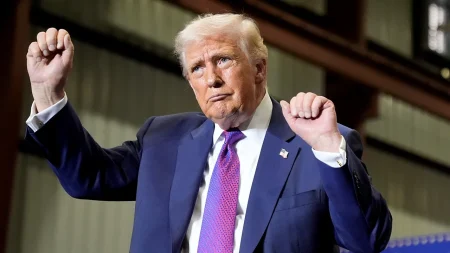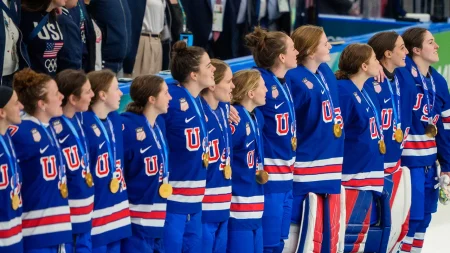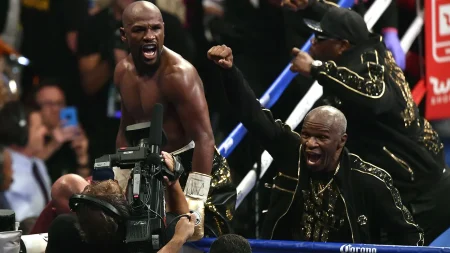Jake Paul, the controversial YouTuber-turned-boxer, has built his career on defying expectations and embracing criticism. His latest venture, a boxing match against 58-year-old Mike Tyson, reignited the debate surrounding his unconventional approach to the sport. The considerable age gap of 31 years, coupled with Tyson’s long hiatus from professional boxing since 2005, fueled accusations that the fight was a staged spectacle. Paul, however, leaned into the controversy, seemingly relishing the public outcry. He even jokingly suggested a future opponent: a 392-year-old Greenland shark recently discovered in the Arctic Ocean. This playful jab, shared on social media platform X (formerly Twitter), underscores Paul’s strategic use of controversy to maintain public interest and generate buzz around his boxing endeavors. This is not the first time Paul has faced criticism for his opponent selection. Two years prior, he squared off against former UFC champion Anderson Silva, who was 47 at the time of their bout – a significant age difference compared to Paul’s 25 years. These bouts, characterized by age discrepancies and perceived mismatches, have contributed to the skepticism surrounding Paul’s boxing credentials.
The accusations of a rigged fight with Tyson prompted a staunch denial from Most Valuable Promotions (MVP), Paul’s promotional company. Co-founder Nakisa Bidarian vehemently refuted the claims, emphasizing the legitimacy and serious implications of fixing a professional sporting event. Bidarian highlighted the fight’s sanctioning by the athletic commission and its broadcast partnership with Netflix, a major public media company. Furthermore, the event was subject to professional sports betting, underscoring the legal ramifications of any manipulation. Bidarian argued that rigging the fight would constitute a federal crime, exposing all involved parties, including himself, Paul, Tyson, and Netflix executives, to severe legal repercussions. He emphasized the gravity of such an act, suggesting that it would jeopardize not only their careers but also their freedom.
To further solidify the fight’s authenticity, Bidarian cited the postponement due to Tyson’s health issues. Tyson suffered from an ulcer, requiring a five-month delay to allow him to recover and compete at his optimal level. Bidarian questioned the logic of postponing a staged event, arguing that if the fight were predetermined, the ulcer would have been irrelevant and the original date could have been maintained. He emphasized that the postponement demonstrated the genuine nature of the bout and the commitment to ensuring a fair competition. Bidarian’s emphatic denial and the supporting evidence underscore the seriousness with which MVP treated the accusations and their commitment to upholding the integrity of the fight.
The controversy surrounding the Tyson fight is emblematic of the broader debate surrounding Jake Paul’s place in the boxing world. Critics argue that his fights are more spectacle than sport, carefully orchestrated events designed to generate publicity and revenue rather than showcase true boxing prowess. They point to the age and experience disparities of his opponents as evidence of this claim. Paul’s supporters, however, maintain that he is a legitimate boxer, albeit one with an unconventional path to the sport. They argue that he has demonstrated genuine skill and dedication, highlighting his undefeated record and knockout victories.
Paul’s career trajectory, from YouTube prankster to professional boxer, is undeniably unique. He has leveraged his social media presence and savvy self-promotion to build a substantial following and generate considerable interest in his boxing endeavors. While his methods may be unconventional, they have undeniably proven effective. He has successfully disrupted the boxing landscape, challenging established norms and creating a new paradigm for athlete-driven promotion. Whether one views him as a legitimate boxer or a shrewd entertainer, Paul’s impact on the sport is undeniable.
Ultimately, the debate surrounding Jake Paul’s boxing career is likely to persist. His fights will continue to draw scrutiny, and his critics will continue to question his motives and methods. However, Paul has demonstrated a remarkable ability to thrive amidst controversy, turning criticism into fuel for his self-promotion machine. His career trajectory remains unpredictable, but one thing is certain: Jake Paul will continue to make headlines, and he will continue to challenge the conventional wisdom of the boxing world. His story serves as a testament to the power of self-promotion and the evolving landscape of modern sports entertainment, where the lines between athlete, entertainer, and entrepreneur are increasingly blurred.















